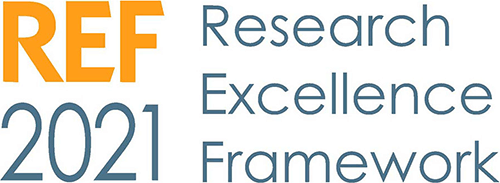Start date(s):
October 2026 (deadline for applications is end of June 2026)
January 2027 (deadline for applications is end of September 2026)
Duration:
3 - 5 years
(Full time and part time available)
Number of Credits:
180 at master's level
360 at doctoral level
Get ready to shape the future of educational practice and policy.
Our PhD (Professional) Education is designed for experienced professionals who want to transform their practice, influence policy, and lead meaningful change in education. Unlike traditional doctoral routes, this programme combines advanced research training with a focus on real-world application, allowing you to explore the complex challenges educators face today while developing the expertise to solve them.
Whether you currently work in schools, further or higher education, policy, consultancy, or third-sector organisations, this doctorate supports you in turning your professional experience into high-impact research that makes a difference.
You’ll undertake your Doctor of Philosophy (Professional) Education in two stages. Stage 1 consists of 180 credits of four taught modules and a research pilot project at Level 7. After this, you’ll advance to Stage 2 to complete your original thesis at Level 8, a PhD-level stage worth 360 credits.
Why choose this programme?
- learn from experts at one of the UK’s leading modern universities for research
- progress step-by-step from structured learning to original independent research
- apply your studies directly to your workplace, policy interests, or systems of practice
- benefit from flexible, tailored support to help you achieve your ambitions
- become part of a research community shaping educational thinking locally and internationally.
#1 modern university in the UK for Research
Research Excellence Framework

Modules
Social science research is about investigating human activity in the social world. Every social science researcher must address fundamental questions concerning the kind of knowledge that we can acquire about the social world, and whether, and how, we can pursue such knowledge systematically and rigorously. There are different and often contrasting philosophical frameworks on how to approach the study of social phenomena, each presenting different theoretical, methodological, and axiological stances.
The module will consider diverse philosophical frameworks underpinning social science research while encouraging students to reflect on which approach may align with their own research and values. Each framework will be analysed in light of questions about the nature of the world (ontology), how we know what we know (epistemology) and what values we hold (implicitly or explicitly) as researchers.
In exploring the differences and implications of philosophical frameworks to social research, students will develop knowledge and understanding of the foundations of social science research, enhance their skills of analysis, criticality, and rigour of argumentation. They will be able to reflect on their own positionality as researchers against broader theoretical and moral considerations, as well as starting to appreciate the role of research in informing policy aimed at addressing compelling social problems at the local and/or global level.
Qualitative research is a complex and broad field of research, which seeks to understand and explain social phenomena rather than measure them. Qualitative research encompasses different theoretical understandings and methodological approaches, while drawing on both interpretivist and critical paradigms to act as foundations for the research designed.
This module aims to develop and deepen students’ knowledge and understanding of qualitative research alongside of the skills needed to plan and deliver small-scale qualitative research projects. It provides opportunities to explore qualitative research designs, the epistemological underpinnings of qualitative methodologies, and the application of a range of qualitative methods to real-world research projects. Students will be introduced to a range of interpretative and inductive approaches available for collecting and analysing qualitative data. Ethical considerations and processes in the design and conduct of qualitative research will also be examined.
Quantitative research, which is often has a home in the hard sciences, has not always been embraced by education or social science researchers. However, with quantitative research often preferred by policy makers and organisations for its perceived ability to demonstrate impact, it is vital that new researchers develop key skills in quantitative research approaches. This module is designed to help you build confidence and competence in using quantitative approaches as a postgraduate researcher. Whether you are new to statistics or looking to deepen your understanding of quantitative design, this module will guide you through the key principles, practices, and possibilities of working with numbers to answer meaningful research questions. We will explore how to design robust studies, choose appropriate methods, and interpret data in ways that are both rigorous and relevant. You will also learn how to critically assess the strengths and limitations of quantitative approaches in different research contexts.
What You will Learn:
- The foundations of quantitative research: philosophical underpinnings, design logic, and methodological choices.
- How to formulate research questions and hypotheses suitable for quantitative investigation.
- Techniques for data collection, including surveys and secondary data use.
- Approaches to data analysis using descriptive and inferential statistics.
- How to interpret and present quantitative findings clearly and ethically.
This module invites you, an aspiring researcher, to explore what it means to be a researcher in today’s complex, fast-changing world. Whether you are considering doctoral study or already on that path, this module will help you critically engage with the evolving landscape of research in the 21st century giving you the tools to think critically, creatively, and confidently about research and being a researcher. This will include debates around the nature of research, the positionality of the researcher, who shapes the research we do and how we do it, managing research projects, research ethics, how we measure the impact of research and is it really publish or perish?
The module will focus on some key questions:
- What is the role of research in society today?
- How do researchers’ own experiences, world views and positionality impact the research they do?
- How do researchers navigate ethical dilemmas, digital transformations, and the challenges of working in and with marginalised communities?
- What does it mean to produce knowledge in a world shaped by global challenges and diverse perspectives?
This module gives you the opportunity to design and carry out your own small-scale research project—from idea to execution to publication-style reporting. You will take the lead in shaping a pilot study that reflects your interests, applying the research skills you have developed so far. The aim is to help you experience the full research cycle in a supportive, structured environment.
You will begin by identifying a research question and selecting an appropriate methodology. Then, you will collect and analyse data and finally present your findings in the format of a journal article. This will provide invaluable experience of research from inception through disseminating your research via publication targeted at either academic or professional audiences.
What You will Learn:
- How to design a feasible and ethical pilot research project.
- How to apply appropriate research methods to collect and analyse data.
- How to reflect critically on your research process and outcomes.
- How to write up your findings in the style of a peer-reviewed journal article.
- How to position your work within wider academic and professional conversations.
These are the current planned modules on this course and may be subject to change.

"It's a privilege to have the opportunity to pursue my own research in an area that I am passionate about. When I entered the classroom back in 2001, I never thought I would have the chance to study and research at this level and get to spend time with such inspiring researchers. It is fascinating to be able to focus on the 'bigger picture' of education and make an original contribution to research."
Kirsty Ruthven, PhD (Prof) Education student
Your curriculum
A doctorate built around your professional goals.
The PhD (Professional) Education is structured to guide you from supported, high-quality research training into independent doctoral study. You won’t just learn about research - you’ll apply it to real issues in education that matter to you, your institution, and the communities you serve.
The programme is structured in two stages. Stage 1 develops your knowledge and research skills through taught modules and a pilot project, while Stage 2 focuses on doctoral-level supervision and the completion of your original thesis.
This staged design supports you as you progress from guided learning to original research with the knowledge, skills and clarity you need to succeed at doctoral level.
If you are in receipt of recent and relevant level 7 credits you can request credit transfer. Credit transfer into the programme will be considered on a case-by-case basis up to a maximum of 120 level 7 credits.
Stage 1
Gain the academic grounding and confidence you need to undertake doctoral research successfully.
Through interactive, face-to-face teaching you’ll explore the foundations of research, examine debates shaping modern education, and develop the ability to design and justify your own research.
You’ll complete four taught modules and a research pilot project. This stage is hands-on, collaborative, and directly connected to your professional context, enabling you to strengthen your skills in:
- critical analysis
- academic writing
- systematic research design
- constructing persuasive arguments
- evaluating policy, practice, and evidence
You’ll also tailor your assessments to explore issues that matter to you professionally, enabling you to investigate challenges, initiatives, or areas of interest within your own workplace and apply research directly to real-world contexts. Through constructive feedback, you will continue to strengthen your academic writing, critical thinking, ability to build persuasive arguments, and capacity to evaluate research effectively, helping you progress with confidence into Stage 2 of the programme.


Stage 2
Stage 2 is where your research becomes your contribution to the field.
This stage focuses on your independent research project - a thesis of 55,000–60,000 words supported by your Director of Studies and supervisory team.
Through one-to-one tutorials, research discussions, and opportunities for peer feedback, you will deepen your understanding of your field, refine your methodological approach, and develop the authority and academic voice needed to produce original, publishable research.
Supervisions are flexible - held online, on campus, or a blend - making the programme accessible for working professionals.
Across this stage you will:
- deepen your expertise in your chosen area
- refine your research voice
- gain confidence presenting and defending your ideas
- participate in doctoral community events such as conferences and peer review.
Progression and milestones
To progress to stage 2 of the programme, you will need to attain an average grade of at least 58% in the MA modules that you undertake at the University of Roehampton. If, for academic or personal reasons, you are unable to complete the full programme, you can still leave with a recognised postgraduate qualification depending on the number of credits gained, such as a PG Certificate in Education, PG Diploma in Education, or MA Education.
Throughout Stage 1, you will study your Level 7 modules and complete a research pilot project while also working towards RDCom2 (Project Confirmation). RDCom2 is your opportunity to outline your proposed doctoral research, explain why it is important, and show how it connects to existing literature. It usually takes place near the end of Stage 1, but it is assessed separately from your taught modules. To support you through this, you will be allocated a Director of Studies (DOS) when you enrol, who will guide your development and help you prepare for Stage 2.
In Stage 2, the focus shifts to your doctoral research. You will work closely with a supervision team, using tutorials and ongoing feedback to refine your research questions, deepen your understanding of the field, and develop your identity and voice as a researcher. A structured checkpoint, RDCom3 (Progression Review), takes place six months after registration for full-time students or twelve months for part-time students, helping ensure you are progressing well and receiving the support you need.
Feedback continues throughout this stage, including comments on RDCom2 and RDCom3 submissions and on draft thesis chapters. You'll also have opportunities to take part in peer review by presenting your work at annual student conferences or poster presentations. These experiences help you build confidence, engage with the wider doctoral community, and strengthen your skills as a reflective and collaborative researcher.

"I am currently a Deputy Headteacher in a secondary school in South London. My current research examines how leadership can be understood and represented among underrepresented groups, with a particular interest in issues of equity, inclusion, and social justice within educational leadership. The University of Roehampton provides a supportive and research-rich community that aligns with my professional experience and academic interests, fostering meaningful inquiry across all areas of research."
Preya Laing, PhD (Prof) Education student
Career
This programme is designed to take you further in your career - into leadership, influence, and subject expertise.
As a graduate, you'll have the ability to:
- generate and use research to drive evidence-based improvement
- navigate and respond to complex professional challenges
- lead innovation within organisations and systems
- shape conversations in education through publication and dissemination
- communicate research clearly to both specialist and public audiences.
You could progress into senior roles in:
- school and university leadership
- educational consultancy
- curriculum or policy development
- government and third-sector organisations
- academic research and teaching.
Wherever you take it, this programme equips you to make a visible and lasting contribution to the future of education.


"I’m a part-time PhD (Prof) Education research student. My research explores the workforce crisis in England’s early years sector, examining how policies are developed and implemented, and where the disconnect between policy intentions and practical realities arises. My doctoral journey has been an incredibly rewarding and transformative experience, enriching me both professionally and personally. It has strengthened my research skills, deepened my understanding of the phenomenon under investigation, and inspired me to continue growing as a researcher and leader. Overall, I look forward to this journey with excitement to see where it will lead her next."
Cristina Motoca, PhD (Prof) Education student

A dynamic research community
As a student on this programme, you become part of our Centre for Educational Research. We have a long and distinguished history in educational research, working to ensure that all young people are able to benefit from enriching educational experiences, and to become active and engaged global citizens.
Here you’ll have opportunities to:
- work alongside a diverse community of practitioners, academics, and postgraduate researchers
- attend research seminars, workshops, and conferences
- collaborate with peers across sectors and countries
- connect your research to real educational challenges in schools, universities, and policy environments.
The Centre’s work influences decision-making from local classrooms to national and international policy - and you will be studying at the heart of it.
Open days
Get a real taste of our campus, community and what it’s like to study at Roehampton
Applying
UK postgraduate students apply through our direct application system.
Course subject to curriculum enhancement and revalidation.
Specific entry requirements
(i) a minimum 2:2 honours degree from a UK university in a relevant subject area, or an equivalent academic qualification, or evidence of equivalent experience and learning acquired in a professional context (it is desirable to have evidence of successful learning at Level 7 or equivalent but not a requirement to have a full Masters degree; and it is desirable, but not essential, to have experience of conducting empirical research);
(ii) evidence of proficiency in spoken and written English as outlined in the General Requirements for Admission for doctoral study ;
(iii) relevant and appropriate professional experience; and
(iv) an outline of the proposed research proposal which will demonstrate the potential to satisfy the criteria for the intended award.
An applicant will only be admitted to the programme where:
(i) the University can provide appropriate supervision and training;
(ii) the applicant would have access to the necessary resources to support successful completion of the degree course; and
(iii) any issues relating to commercial funding, intellectual property and research ethics have been considered and are appropriately addressed.
Deadlines
Students are advised to make contact to develop their application as early as possible in the spring so as to enable the process and ensure – where appropriate – a September enrolment. Applications for September admission will not be processed if initial enquiries are made later than the end of the preceding June.
General entry requirements
International postgraduate students apply through our direct application system.
Course subject to curriculum enhancement and revalidation.
Specific entry requirements
(i) a minimum 2:2 honours degree from a UK university in a relevant subject area, or an equivalent academic qualification, or evidence of equivalent experience and learning acquired in a professional context (it is desirable to have evidence of successful learning at Level 7 or equivalent but not a requirement to have a full Masters degree; and it is desirable, but not essential, to have experience of conducting empirical research);
(ii) evidence of proficiency in spoken and written English as outlined in the General Requirements for Admission for doctoral study ;
(iii) relevant and appropriate professional experience; and
(iv) an outline of the proposed research proposal which will demonstrate the potential to satisfy the criteria for the intended award.
An applicant will only be admitted to the programme where:
(i) the University can provide appropriate supervision and training;
(ii) the applicant would have access to the necessary resources to support successful completion of the degree course; and
(iii) any issues relating to commercial funding, intellectual property and research ethics have been considered and are appropriately addressed.
Deadlines
Students are advised to make contact to develop their application as early as possible in the spring so as to enable the process and ensure – where appropriate – a September enrolment. Applications for September admission will not be processed if initial enquiries are made later than the end of the preceding June.
General entry requirements
Fees and funding
UK students
Tuition fees
| Entry date | PhD (Prof) (full-time) | PhD (Prof) (part-time) |
|---|---|---|
| September 2026 | £9,518 | £TBC |
Prices shown are for the first year of your degree.
Funding your studies
We also provide other ways to support the cost of living, including on-campus car parking, hardship support and some of the most affordable student accommodation and catering in London.
International students
Tuition fees
| Entry date | PhD (Prof) (full-time) | PhD (Prof) (part-time) |
|---|---|---|
| September 2026 | £18,779 | £TBC |
Prices shown are for the first year of your degree.
Funding your studies
We also provide other ways to support the cost of living, including on-campus car parking, hardship support and some of the most affordable student accommodation and catering in London.

